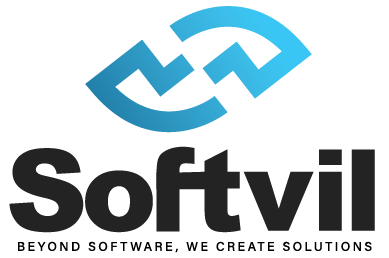Choosing the right software development company is crucial for a startup’s success. The impact of this decision cannot be overstated. Software plays a vital role in enabling startups to innovate, streamline operations, and deliver value to customers. However, the expertise, reliability, and compatibility of the chosen development partner greatly influence these outcomes. Selecting a software development company involves more than finding a coding service. It requires a strategic approach, considering factors such as project requirements, expertise, communication, scalability, and cultural fit. The right company understands startup challenges, possesses the necessary technical knowledge, and aligns with goals and budgets.
On the other hand, the wrong development partner can lead to delays, cost overruns, subpar results, and project failure. It hampers the startup’s ability to adapt and scale. In this article, we will explore essential tips for startups when choosing a software development company. By making an informed decision, startups can set themselves on a path to success, ensuring their software project meets objectives effectively.
Clearly Define Your Project Requirements

One of the crucial steps in choosing a software development company for your startup is to clearly define your project requirements. This involves articulating your project goals, budget, timeline, and specific features or functionalities you need. By having a well-defined scope, you set the foundation for finding a compatible development company that can deliver the desired outcome. By clearly defining your project requirements, you increase the chances of finding a development company that understands your goals, can meet your expectations, and has the necessary expertise to bring your vision to life. It streamlines the evaluation process and ensures a stronger foundation for a successful partnership.
Emphasize the significance of defining project goals, budget, timeline, and specific features:
Defining your project goals provides a clear direction and purpose for the software development process. It helps you communicate your vision and expectations to potential development companies. A well-defined budget allows you to evaluate companies that fit within your financial constraints. Setting a realistic timeline helps in planning and managing the project effectively. Identifying specific features or functionalities helps companies understand the complexity of your project and whether they have the expertise to handle it.
Explain how clear requirements help in finding a compatible development company:
Clear requirements act as a filter to identify development companies that have experience in similar projects. When your project requirements align with a company’s expertise, they are more likely to understand your needs and deliver high-quality results. Additionally, clear requirements facilitate accurate cost estimation and timeline projections, helping you select a company that can work within your constraints. It also streamlines the selection process as you can focus on companies that have a proven track record of successfully executing projects with similar requirements.
Evaluate Expertise and Experience

When choosing a software development company for your startup, assessing the company’s technical expertise and experience is of utmost importance. This step helps ensure that you find a company that possesses the necessary skills and knowledge to successfully execute your project. Here are two areas that will guide you through the evaluation process.
Importance of assessing technical expertise and experience:
By assessing a company’s technical expertise, you can determine whether they have the necessary capabilities to handle your project. Consider their proficiency in relevant programming languages, frameworks, and technologies. Look for companies that have experience in developing software solutions similar to what you require. This expertise is crucial in delivering a high-quality product that meets your specific needs.
Guidance on reviewing portfolios, case studies, and client testimonials:
Reviewing a company’s portfolio gives you insight into their previous projects and the industries they have worked in. Look for examples that align with your startup’s domain or project requirements. Case studies provide detailed accounts of how the company approached and solved specific challenges. They showcase the company’s problem-solving abilities and the results they achieved. Additionally, client testimonials offer valuable feedback on the company’s performance, communication, and overall satisfaction. Pay attention to any reviews that mention factors relevant to your project, such as timeliness, flexibility, and expertise.
Communication and Collaboration

Effective communication and collaboration are essential factors in the success of a software development project. They facilitate a smooth and productive working relationship between your startup and the development company. By emphasizing effective communication, you can establish a strong working relationship with the development company, fostering collaboration and shared understanding. Transparent project management processes enable you to have visibility and control over the project’s progress. Collaboration with your team ensures that the final product aligns with your startup’s vision and requirements. Together, these elements contribute to the successful execution of the software development project.
Role of effective communication in development projects:
Clear and timely communication ensures that both parties have a shared understanding of project goals, requirements, and progress. It allows for effective problem-solving, risk mitigation, and decision-making throughout the development process. Regular communication helps in identifying and addressing any challenges or changes that may arise. It also fosters a sense of trust and transparency, which are crucial for a successful partnership.
Importance of transparent project management processes and collaboration with your team:
Transparent project management processes enable you to have visibility into the progress, milestones, and deliverables of the development project. It includes aspects such as regular progress updates, project documentation, and a defined workflow. Collaborating with your team and involving them in the development process helps in aligning expectations and ensuring that the final product meets your startup’s requirements. It also facilitates knowledge transfer, enabling your team to understand and maintain the software solution effectively.
Scalability and Long-Term Support

When selecting a software development company for your startup, it is essential to consider the long-term needs of your business. This involves evaluating the company’s ability to provide scalable solutions and ongoing support. By considering the long-term needs of your startup, you can select a software development company that can provide scalable solutions and offer comprehensive post-development support. This ensures that your software solution can adapt to your changing requirements and continue to deliver value as your business expands.
Importance of considering the long-term needs of the startup:
As a startup, your software needs are likely to evolve and grow as your business expands. It is crucial to choose a development company that understands the dynamics of startups and can accommodate your changing requirements. Assess their flexibility in adapting to new technologies, integrating additional features, and supporting future enhancements. By considering the long-term needs of your startup, you can ensure that the software solution can scale alongside your business and continue to meet your evolving needs.
Significance of scalability and inquiring about post-development support:
Scalability refers to the ability of the software solution to handle increasing volumes of data, users, or transactions without compromising performance. Inquire about the development company’s expertise in building scalable applications and their track record in handling similar scalability challenges. Additionally, consider the post-development support they offer. This includes maintenance, bug fixes, updates, and upgrades. A reliable development company will provide ongoing support to ensure that the software solution remains robust, secure, and up-to-date, even as your business grows.
Cultural Fit and Shared Vision

When choosing a software development company for your startup, it is crucial to consider the cultural fit and shared vision between your startup and the development company. A strong alignment in values, work culture, and vision contributes to a successful partnership. By prioritizing cultural fit and shared vision, you can build a strong working relationship with the development company. A shared value system and collaborative work culture create a conducive environment for effective communication, innovation, and successful project delivery. It fosters a sense of partnership, where both your startup and the development company work together towards achieving a shared vision of success.
Importance of cultural fit between the startup and the development company:
Cultural fit refers to the compatibility and alignment of values, work ethics, and communication styles between your startup and the development company. It plays a significant role in fostering a positive and collaborative working relationship. When there is a cultural fit, both parties are more likely to understand and respect each other’s perspectives, leading to effective collaboration and problem-solving. A shared cultural fit creates a sense of trust, open communication, and mutual understanding, which are vital for a successful software development project.
How shared values and a collaborative work culture contribute to a successful partnership:
Shared values act as a foundation for a strong partnership. When your startup and the development company have shared values, such as a commitment to quality, innovation, or customer satisfaction, it promotes a common understanding and goal orientation. A collaborative work culture encourages open communication, idea sharing, and teamwork, leading to enhanced productivity and efficiency. It allows for effective collaboration between your startup’s team and the development company, enabling a seamless integration of expertise and ideas. This shared vision and work culture foster a sense of ownership and accountability, ensuring that both parties are invested in the success of the project.
Conclusion
Choosing the right software development company is paramount for the success of startups. By clearly defining project requirements, startups can find a compatible development company that aligns with their goals. Evaluating expertise and experience helps in selecting a company with the necessary skills and track record. Effective communication and collaboration foster a productive partnership, while considering long-term scalability and support ensures future growth. Cultural fit and shared vision create a harmonious working relationship. Overall, making an informed decision when choosing a software development company is crucial. By following the tips discussed in this article, startups can increase their chances of finding the right partner and achieving their software project objectives. So, take the time to assess, evaluate, and choose wisely to set your startup on the path to success.

